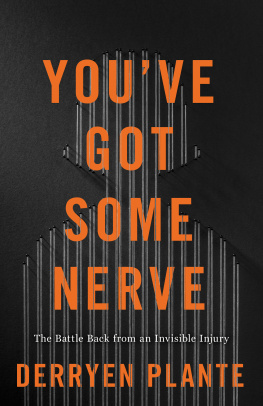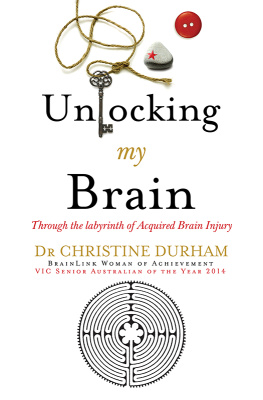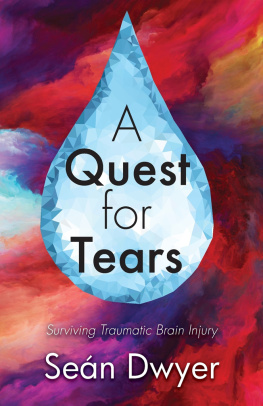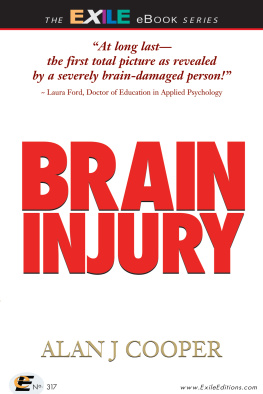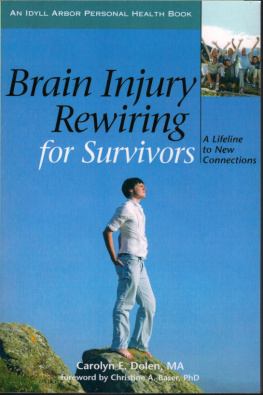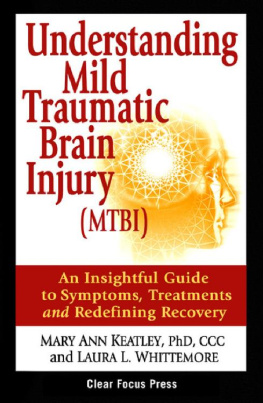All rights reserved.
For my loving family.
and for those who are trying to find their way out.
You are not alone.
Introduction
With my college textbook tucked into my floral - print backpack and coffee in hand, I clocked in to begin another long evening shift. Unlike many women my age, I wasnt heading to an office to answer phones, or to a classroom to teach bright - eyed students; I worked in a prison.
That may sound grim for a twenty - three - year - old woman, but it was all part of my plan. Working at the jail allowed me to work within the criminal justice system and gain valuable firsthand experience, and it provided me with the financial resources to pursue a graduate education. I hoped that each of these aspects would help me progress toward landing my dream job as an investigator for a federal law enforcement agency. It was just one more checkmark on the long list Ive been working through since I started watching Cold Case Files as a child.
High school honors, check.
Martial arts training, check.
College honors, check.
Law enforcement internships, check.
Graduate studies, underway.
It was Saturday night and everything seemed normal on the unitor as normal as it ever was. We didnt really do normal; we did controlled chaos. I spent most of my evenings working with juveniles who were classified to the high risk unit, which meant I worked with some of the most dangerous juveniles in the entire state.
Dont let the term juvenile fool you. Their crimes ran the gamut of felony drug charges to armed robbery, aggravated assault, and attempted murder, to name a few. There was nothing that happened in an adult facility that didnt take place in this facility, especially in my unit. As much as people outside these prison walls believed that these individuals were just children, many of them were exceedingly dangerous. In fact, in many cases, juveniles are more dangerous than adults. They havent developed impulse control, nor do they typically face longer sentences that would deter them from being violent. A good night for me, my coworker, and the sixteen teenage boys we were in charge of meant someone threw the dayroom trashcan across the room or broke a television, but no noses were broken or eyes blackened by the inmates.
None of this was new to me after a year and a half working here. The chaos had become routine. So, I mostly watched the minutes tick by, as every minute without a crisis was one minute closer to the end of my shift. I meticulously conducted and documented unit checks, making sure that all the inmates were safe and secure. I looked forward to getting everyone to bed so I could flip through a few pages of my textbook between unit checks.
The clock ticked past 7:30 p.m., and so far, so good. There wasnt much left until the unit locked down in their cells for the evening. Everyone ate dinner and finished their workouts at the gym. Most of the guys were lounging around the dayroom watching television, sprawled on the so - heavy - they - can t - be - overturned couches, or sitting at the bolted - to - the - floor spider tables. A couple of inmates worked on a jigsaw puzzle beside my desk.
My coworker and I did our best to keep our inmatesour kids, as I affectionally called themoccupied with activities throughout the evening. Juvenile criminals with idle time tend to find increasingly creative ways to engage in criminal behavioreven in jail. The residents in my unit had a tendency to tattoo, gamble, make weapons, create escape plans, assault other residents, or self - harm if they werent watched closely. Per the usual, I was keeping track of everyone from the staff desk in the middle of the dayroom when suddenly, out of the blue, I heard one of my inmates yell out a phrase.
Im going to kill myself!
Oh no, here we go , I thought to myself.
This phrase has been weaponized as a tool of manipulation to be used against staff. When inmates shout suicidal statements across the dayroom, it generally isnt because they feel genuinely unsafe, but rather, its a way to initiate a specific set of protocols. They did this all the time, as for them it was usually a means to an end. When an inmate yells suicidal statements, you never know what to expect next. The results can range from a peaceful protest to the inmate gearing up for a fight with staff.
Some residents did this to retaliate against staff. For example, inmates would make suicidal statements five minutes before a shift change to force a specific staff member to stay past the end of their shift. They couldnt leave until the resident was medically cleared from being on a suicide watch, which could take more than an hour depending on how busy the medical unit was and how long it took to reach a clinician. Retaliation from inmates stemmed from staff members issuing a write - up for rule breaking, enforcing activity restrictions, or something as simple as not giving an inmate an extra snack from the dining cart. Many times, an entire pod of inmates will make suicidal statements in protest to being locked down in their rooms.
Some inmates made suicidal statements for other reasons. Staff members who were assigned to a suicidal inmate were often used as an indirect means of protection. Inmates who owed gambling debts, disrespected other inmates, or had sexual convictions were often at risk of being assaulted inside the facility. Having a staff member within constant arms length provided a degree of protection for these inmates, at least for a short period of time.
Regardless of the reasons, all suicide - prevention policies were followed to the letter after the statements were made. I was all too familiar with the drill, so I pulled out the clipboard dedicated to the task and started following protocol. I assigned the only other staff member this night to be the inmates one - on - one , which meant he had to remain within arms reach at all times and document his behavior to assist the mental - health clinician with making a determination during their assessment.
Like most prisons, we were chronically understaffed and overworked with no shortage of forced overtime. For safetys sake, my next task was to lock down the unit, because on the weekends, there were only two staff members in my unit with sixteen teenage boys. Although this ratio doesnt compare with ratios of many large adult prisons, we didnt monitor our inmates from a control room; we worked among them. I cycled the doors, which unlocked the pod doors and the inmates cells, and they started walking themselves to their rooms. They, too, were all too familiar with the drill.
Click, click, click, the doors locked behind them.
Except that last door never clicked.
Moments later, the inmate who threatened self - harm violently attacked me. I braced myself as he furiously struck me numerous times in the head and face. The barrage of forceful blows only lasted about twenty seconds, but those twenty seconds changed my life forever.
A Life Transformed
I didnt know it yet, but from that moment on, my life as I knew it was never going to be the same. That attack not only damaged my body, but it affected my mind and completely derailed my lifes path. I spent years in denial. I refused to acknowledge that this attack was going to ruin my career and the plan I had for my future.

